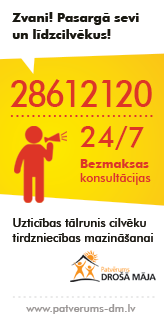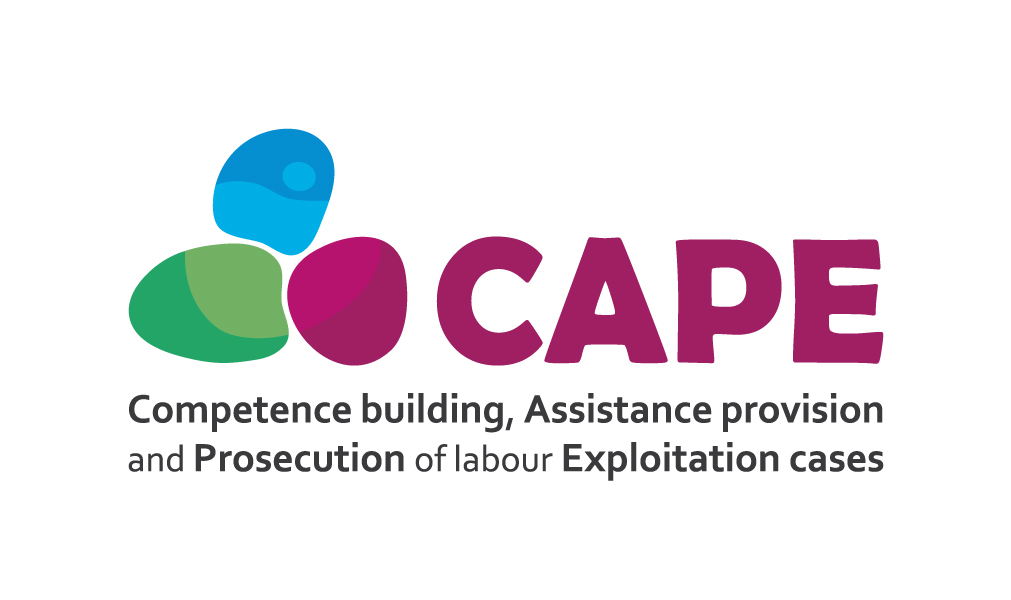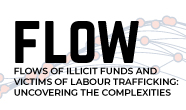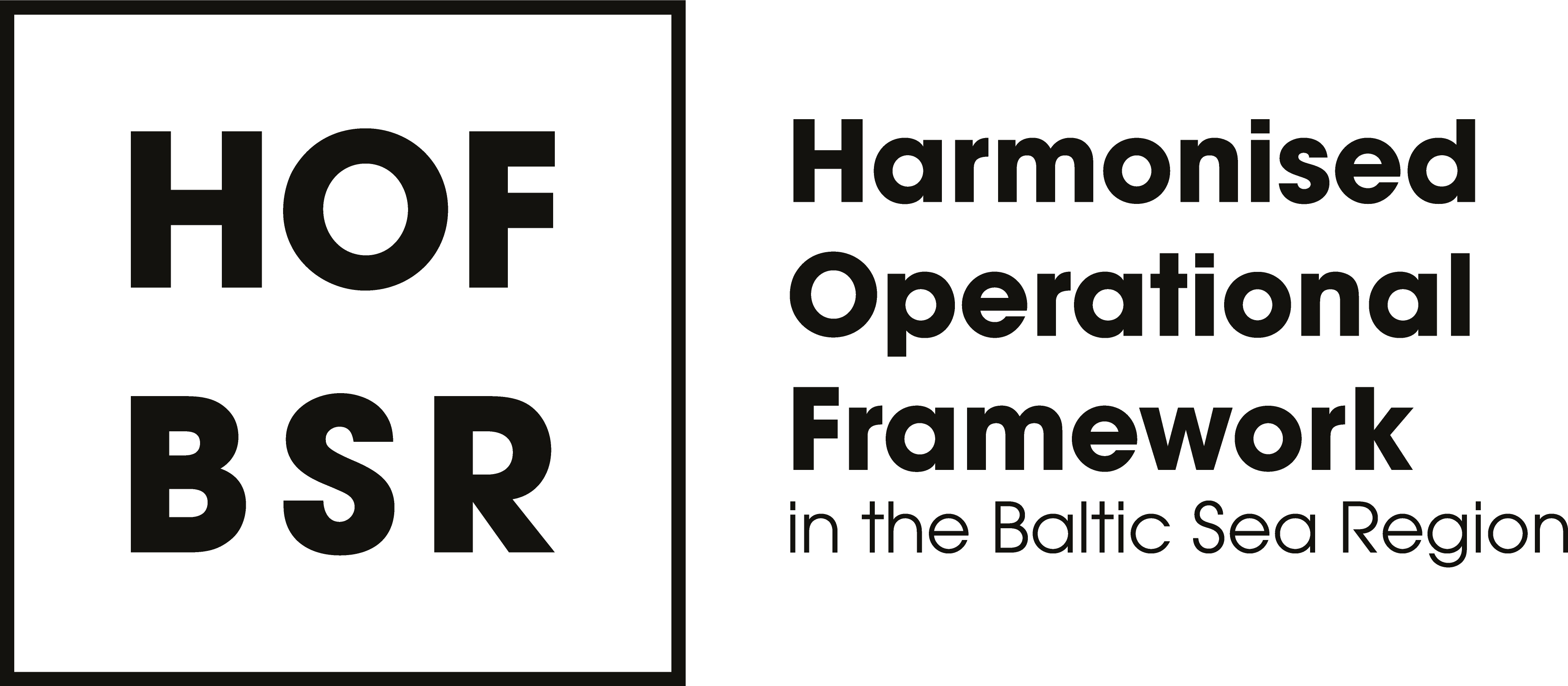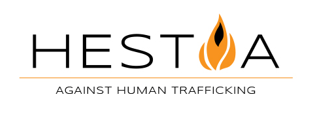European Union member states are concerned about dealing with the enormous flow of asylum seekers. Whereas the aim of the asylum seekers themselves is to find ways and solutions to acquire the rights for free movement within the Schengen Area as legally as possible and to acquire permanent residency rights in their desired host countries. For this purpose sham marriages may be used, which is actually a form of human trafficking that has caused a lot of problems and even suffering to Latvian nationals – victims of sham marriages – already before the so-called refugee crisis.
Lāsma Stabiņa, National Anti-Trafficking Coordinator (Ministry of the Interior) and Manager of the HESTIA* project
 |
It is difficult to assess physical or moral traumas for a person resulted from forced enter into a sham marriage against her own will. A human trafficking victim is deprived of freedom, is sexually abused by being subjected to violent and degrading treatment and sometimes even being forced to give birth to a child, thus completely ensuring the third country citizen with the opportunity to stay within the European Union. The respective person is employed against her own will, whereas the documents are used to obtain credit and loans. At the moment it is difficult to predict to what extent the inflow of asylum seekers in Europe and the future migration processes will affect the involvement of Latvian citizens in sham marriages, but it is indicated in Europol’s 18th February publication of this year that the migration crisis in North Africa and the Middle East will have a major impact on the trafficking of human beings, and there is also an assumption provided that attempts to gain legitimate residency within the European Union will result in more forced marriages of convenience. The main countries of origin of victims of sham marriages that are mentioned in the Europol report are the eastern member states of the European Union – including Latvia, the Czech Republic, Hungary, Poland, Romania, and Slovakia, the female citizens of which are willingly or fraudulently taken to western states to enter into sham marriages with citizens of third countries. Many of these cases originate, for example, in Ireland, which is now the home country of many Latvian citizens. Whereas over the last year there were 71 marriages registered between Latvian citizens and third country citizens, statistically taking up a stable second place behind Portugal, 122 marriages of such sort were concluded between citizens of Portugal and third countries. Certainly, not all civil acts are fictious, but, as practice shows, almost half of such marriages have not been concluded with the aim to establish a family, but in order for third country nationals to acquire a residence permit in the European Union. |
As one can see, the number of marriages between Latvian nationals and third country citizens has decreased at least in Ireland. This has been promoted by public awareness campaigns and activities in Latvia, as well as the regulatory framework of our state that prescribes criminal liability for ensuring a third country national with a possibility to legally acquire the right to stay in Latvia, another member state of the EU, member state of the European Economic Area or in the Swiss Confederation in bad faith.
(It is necessary to give a reminder that the deliberate and willing conclusion of a sham marriage for remuneration is a criminal offence against the state, for which the organisers of such marriages, as well as recruiters, intermediaries, and persons entering into a sham marriage are to be held criminally responsible, and according to Section 285.2 of the Criminal Law may be punished with deprivation of liberty for a term of up to five years.)
Positive results have also been provided through the education of those specialists and practitioners in Latvian regions who are working directly with groups of citizens that are most at risk and that could be persuaded or deceived by human traffickers by luring the respective people abroad and forcing them to enter into a sham marriage.
A significant contribution has also been provided by initiatives of the Irish government by increasing the powers of marriage registrants to refuse the registration of suspicious marriages and inform the authorities about such cases, as well as by forming a specialised police unit, the main task of which is to combat such illegal activities.
Collaboration on an international level
The fight against sham marriages has been expanded to a multinational level of cooperation: during January of the previous year the international project “Preventing Human Trafficking and Sham Marriages: A Multidisciplinary Solution” (HESTIA) was started under the leadership of the Ministry of the Interior of the Republic of Latvia, and it is being implemented with the support of Directorate General of Home Affairs of European Commission “Prevention of and Fight against Crime Programme”.
There are significant aims and objectives for solving the respective problem determined within the project – forming awareness about sham marriages as a form of human trafficking and a criminal offence against a person, developing specific methodology for specialists and practitioners in order for it to be possible to prevent possible human trafficking, identify human trafficking cases and victims, and provide them with state and local government support and assistance.
Partners of the HESTIA project from Estonia, Lithuania, Ireland, Slovakia, and Finland have provided information about the project, its goals and the researched problem at various national, regional and international events, and as a result it is already possible to observe that an understanding regarding the problem is forming among EU member states and a desire to combat this new form of human trafficking is growing.
On 11 and 12 April of this year Vienna will host the high level conference “Alliance against Trafficking in Persons”, organised by Ambassador Madina Jarbussynova, OSCE Special Representative and Co-ordinator for Combating Trafficking in Human Beings. The main theme of this event will be human trafficking for forced criminality. The Latvian delegation is invited to promote a discussion on sham marriages as a new form and trend of human trafficking during the conference.
In the current political conditions it is of utmost importance to continue to raise public awareness about the possibility of human trafficking and its forms, by directly addressing those groups of Latvian citizens that are subjected to the risk of human trafficking. Those are members of the society who are in the situation of vulnerability, convince and persuade due to various reasons, as there might be a situation of vulnerability when the respective people do not have any acceptable or real choice for further living and they do not have the experience to make decisions on their own and act on behalf of their future. They are mostly young people (especially from orphanages), individuals with mental or physical health problems, people who have been out of work for a long time, or have credit liabilities, debts.
It is very important to help these socially vulnerable people in solving their problems, so that the situation does not worsen and they do not accept tempting but unfair offers to earn “easy” money abroad, thus also concluding marriages with third country nationals and frequently getting into cruel enslavement.
Sham marriages are not common in Latvia
There are no cases of Latvian citizens forcibly entering into sham marriages with third country nationals identified within our own state. According to data of the Office of Citizenship and Migration Affairs, in 2013, temporary residence permits issued in Latvia were terminated in three cases (in which sham marriages were concluded between Latvian citizens and citizens from Kazakhstan, Pakistan, and Ukraine), whereas in 2014, there was only one temporary residence permit that was terminated, and it was issued on the basis of a concluded sham marriage between a citizen of Latvia and a Jordan national. There were no signs of human trafficking identified in any of these cases. But that does not mean that we can afford to lower our guard in the fight against sham marriages
We would like to give a reminder that the society “Shelter “Safe House”” has a 24-hour helpline 28612120, and by calling it anyone can receive information about the necessary actions in a specific situation and use it as one of the resources if assistance is required in dealing with cases of human trafficking in Latvia or abroad.
Primary source of information: portal www.lvportals.lv.
*Project "Preventing human trafficking and sham marriages: A multidisciplinary solution" (HESTIA) has been funded with support from the European Commission. This publication reflects the views only of the author, and the European Commission cannot be held responsible for any use which may be made of the information contained therein. Grant Agreement Nr. HOME/2013/ISEC/AG/THB/4000005845. #HESTIA_THB
HESTIA project partners: Ministry of the Interior (Latvia), NGO "Shelter “Safe House"" (Latvia), NGO "Mittetulundusühing"" "Living for Tomorrow" (Estonia); NGO "Caritas Lithuania" (Lithuania); Immigrant Council of Ireland (Ireland); Ministry of the Interior of Slovak Republic (Slovakia); European Institute for Crime Prevention and Control of the United Nations (HEUNI) (Finland). Project associated partners: The State Police (Latvia), Ministry of Foreign Affairs (Latvia), Department of Justice and Equality (Ireland).
Interview author: portal www.lvportals.lv. The information was published 04.04.2016. by (in coordination with the editorial board of www.lvportals.lv): Rasa Saliņa, Public Relations Specialist of the project HESTIA, e-mail: rasa.salina@gmail.com




